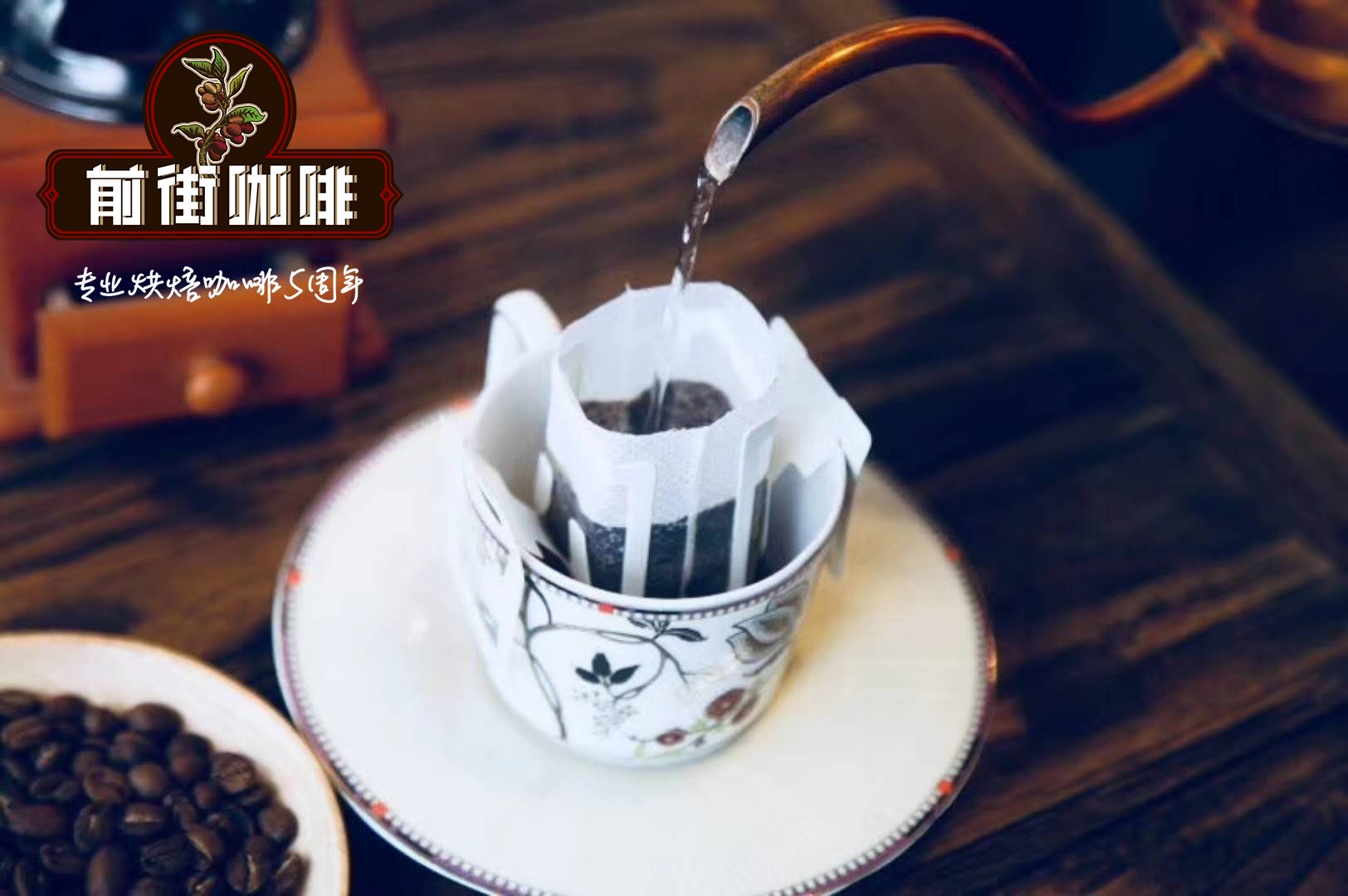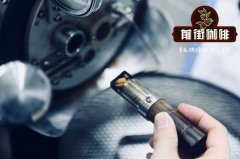How much is a bag of Starbucks coffee? How much is the cat coffee per jin? How much is the slimming coffee?

、
Professional coffee knowledge exchange more coffee bean information please follow the coffee workshop (Wechat official account cafe_style)
CCTV criticizes Starbucks "cost theory" as a laughingstock. How much is Starbucks coffee per jin?
Starbucks coffee is "sold at a high price" in China
The conflict between CCTV and Starbucks attracted many onlookers. CCTV broadcast an investigation report, interviewed and compared the prices of Starbucks lattes in Beijing, London, New York and Mumbai, and found that Beijing was the most expensive with a price of 27 yuan. Mumbai, India, is the cheapest, only more than 14 yuan.
Industry experts have given a list of Starbucks' costs. A medium cup of American coffee, which costs 25 yuan, costs about 20 grams of coffee beans and a disposable paper cup. According to the current market price of 100 yuan / kg of high-quality cooked coffee beans, 20 grams of coffee beans cost 2 yuan, disposable paper cups cost about 0.6 yuan, such a cup of Starbucks American coffee material cost is 2.6 yuan. But its price is basically 10 times the cost of raw materials.
However, this list ignores the fact that the price of a commodity is determined not only by its cost, not only by the cost of raw materials, but also by many factors such as brand and supply and demand.
Starbucks coffee "sold at a high price" follows the market rules.
The official website of Starbucks China said: "Starbucks' operating costs and market drivers in the Chinese market are completely different. Therefore, the comparison of Starbucks' price differences in the Chinese and American markets is not based on the same dimension. Starbucks' pricing strategy in all countries around the world is long-term and is comprehensively considered, evaluated and formulated according to the specific conditions of different products and different markets, as well as the dynamic changes in various operating costs. "
Starbucks does not rely on its monopoly to make excess profits. The price of any product is determined not only by the cost of raw materials, but also by supply and demand, operating costs and prices. For market-oriented products, the relationship between supply and demand is a greater decisive factor, causing the price to often deviate from the cost. Thirdly, it also involves image and credibility. Although Starbucks coffee is expensive, it provides high-quality products and services. It has gathered popularity in China over the years, and continues to accumulate image and credibility.
27 yuan for coffee that costs less than 5 yuan?
02 batches of people against the criticized CCTV public opinion authority how to stand on their own feet
CCTV's "good intentions" criticized Star Buck, but it was bombarded by public opinion.
"domestic media protect the interests of consumers, but they are ridiculed on a large scale by domestic public opinion, which chants" We don't need protection ", which is probably a unique spectacle in Chinese public opinion," the Global Times editorial wrote. " CCTV's "good intentions" criticized Starbucks coffee for being too high for price discrimination in the Chinese market, but it attracted a lot of ridicule from domestic public opinion.
CCTV believes that Starbucks has violated the WTO fair trade principle in the Chinese market and discriminated against Chinese consumers. The basic theory of western economics is that in the market, the price is not determined by cost, but by scarcity. As the saying goes, first-class enterprises sell standards, second-class enterprises sell brands, and third-class enterprises sell products. Starbucks actually provides a cultural experience and sells a standard of identity. This determines the scarcity of Starbucks, and then determines its market position.
"uncrowned King" has never been soft on foreign brands.
At the 315 evening party of CCTV in 2013, CCTV exposed that Apple's after-sales policy in China was discriminatory. The whole machine was exchanged all over the world, and only China did not replace the back cover, in order to avoid the policy of recalculating the warranty period of the new machine. It also triggered a scandal of "8: 20 hair". On August 18, 2013, CCTV News 30 minutes conducted a detailed survey on the prices of major imported cars in China, and took Land Rover as an example to compare the selling prices of the same model at home and abroad. The survey found that the same imported car sells 1.339 million yuan in China, while it is only about 350000 yuan in the United States, which is not only more than 1 million yuan higher than abroad, but also requires an increase in price. in December 2012, according to a CCTV report, KFC was kicked out of the "fast-growing chicken" for another three days to gain a kilo.
In view of the various performances of CCTV, the voice of public opinion on the Internet is more to satirize CCTV's "kindness" and "lack of due diligence". One popular Weibo wrote: "Please question whether the extension of pension contributions is reasonable with the strength and strength to" bombard Starbucks with huge profits, crack down on Apple, and criticize KFC ice cubes for exceeding the limit. " Focus on the phenomenon of forced demolition of houses and indiscriminate occupation of land in various places, okay? Would you like to bombard the soaring oil prices, house prices and medicine prices?
After this "coffee storm", if we want to avoid similar disputes, CCTV should also pursue a more professional position and devote itself to improving the objective and impartial image of the media.
CCTV was bombarded for not knowing the "economic common sense" of free competition.
03 the popularity of foreign brands in the market not only occupies the stomach of consumers
Foreign brands do not always rely on price war to gain a foothold in the market.
Starbucks is a daily drink in Europe and the United States, and high-end consumer goods in China, where many foreign brands adopt similar strategies. Disguise the originally mass consumer goods as luxury goods and make exorbitant profits by taking advantage of consumers' showing-off mentality. McDonald's and KFC first entered the Chinese market with high prices, which were more expensive than those in Europe and the United States. Later, with the change of consumer awareness, they restored the original appearance of fast food. Haagen-Dazs is sold by barrels in the United States, but only a small portion can be bought in China at the same price. On the other hand, foreign luxury goods are even more clamorous at home, and there is a greater difference in prices at home and abroad.
Globally, the prices of McDonald's and KFC products in China are much lower than those in the United States and Europe. There is no "discrimination" and "conspiracy" behind high-priced Starbucks and low-priced Coca-Cola, but enterprises find the most suitable way to survive in the face of fierce market competition.
Starbucks leads not only in consumption of coffee, but also in services and brands.
Starbucks with 27 yuan in hand obviously has more status than a cup of Nestl é. Economic development has led to the division of social wealth, and people begin to value social status and status after their pockets are bulging. This is also a prominent contradiction and problem in the period of economic and social transformation in China.
The growing popularity of coffee culture has also brought about the rise of coffee shops. A quiet and comfortable environment, a convenient and delicious meal, and a free and convenient Internet are all common feelings brought to consumers by Starbucks. People who surf the Internet, take care of children, and date and talk are also common at Starbucks. As a netizen who often goes to Starbucks to ask people out to talk, he said, "I can't ask people out for snacks in Shaxian County."
Price positioning: how do foreign brands survive in the world?
04 coffee consumption popular Starbucks carries "identity tag"
Daily habits abroad have become popular at home and become a hobby of petty-bourgeois white-collar workers.
Starbucks is only an ordinary tea restaurant abroad, which is no higher than the pearl milk tea on the streets at home, but at home, Starbucks tries to turn itself into a luxury and tries to position itself as a tool for local tycoons to show off. it is considered to be a place for social elites and high-end people to spend.
For many years in China, Starbucks has been labeled as a petty bourgeoisie, and it is also a necessary place for working elites to live and work, so that there is a widely circulated classic saying, "I am not in the office, I am not at Starbucks, I am not at Starbucks, I am on my way to Starbucks."
Life clips such as "Starbucks afternoon" and "the woman of Haagen-Dazs" often appear in written manuscripts, where unforgettable stories that may affect people's quality of life and happiness seem to take place every day. This is a kind of psychological satisfaction of brand and consumption, a kind of consumption resonance. We have to admit that the success of Starbucks and Haagen-Dazs has something to do with accurate brand positioning.
"it took me 18 years to sit in Starbucks and drink coffee with you."
Five years ago, an article entitled "it took me 18 years to sit in Starbucks and have coffee with you" caused waves of public opinion. The article tells the story of a peasant boy who, after 18 years of struggle, finished his master's degree in Shanghai, found a job, got a stable and satisfactory salary, became a white-collar worker envied by young people, and got the right to be on an equal footing with his peers in the metropolis. The author, who went back to sigh for his struggle history, put a successful identity tag on "drinking coffee at Starbucks".
The typical characteristic of petty-bourgeois white-collar workers is minority culture, and gaudy is an obvious symbol of them. whether it is good to drink coffee or taste coffee, it is more about the label meaning brought by the brand environment, just like a few decades ago when Zhongshan put several pens in the chest pocket to show the culture. The starting point of Starbucks's marketing is to see the psychological needs of Chinese consumers and hit the weakness.
It took me 18 years to sit in Starbucks and drink coffee with you.
No matter how successful the marketing is, Starbucks has to worry about rent.
Starbucks revelation: rising house prices and rising cost of living
The actual cost of a cup of coffee is much more than the cost of materials. Some clues can also be seen from Starbucks' 2012 results: in China, rent accounts for the largest proportion of the cost of a $4.8 Starbucks latte, specifically as follows: rent $1.25, accounting for 26%; profit $0.85, accounting for 18%; store operating costs $0.72, accounting for 15%; raw materials $0.64, accounting for 13%; labor costs $0.41, accounting for 9% General administrative expenses are US $0.28, or 6%; tax revenue is US $0.24, or 5%; equipment costs are US $0.17, or 4%; and other operating expenses are US $0.23, accounting for 5%. The first Starbucks store in mainland China, the Beijing International Trade Mall, also closed because of high rents.
Some netizens also mentioned that Starbucks is basically the positioning of tea restaurants in Europe and the United States, which can be seen everywhere and consumption is popular. In China, Starbucks is mostly opened in CBD, noble neighborhoods and other areas, and the cost of rent far exceeds the cost of materials, and prices will inevitably rise.
Starbucks marketing "third space": one is willing to hit and the other is willing to suffer.
From a purely commercial point of view, as long as it is not illegal, there is nothing wrong with high prices and high profit margins. The Chinese market was once ridiculed as "stupid, rich and quick", and today's chain coffee market has the same taste. For example, in the discussion of Starbucks'"profiteering", there is a voice that "as long as someone buys it, it is a skill to sell a cup of coffee for 100 yuan." And observe the general trend of the industry, in addition to Starbucks, COSTA from the United Kingdom, South Korea's Man Coffee and so on have increased their efforts to expand in mainland China.
Starbucks founder Howard Schultz said: people's stranded space is divided into homes, offices and other places. The first space is home, and the second space is office. Starbucks is somewhere in between, a place where people feel relaxed and safe, and a place where you feel like you belong. Not only coffee, in Starbucks, music, lighting, cups, all have their own characteristics and property rights, forming the added value that consumers are happy to pursue and infatuated with. There is no denying that this is the scarcity of Starbucks, based on the market brand.
Starbucks revelation: high House Price cost
Starbucks sells a cup of coffee costing 4 yuan for 27 yuan. Who knows that this "cost of 4 yuan" has added to Starbucks' years of brand accumulation, and how much of the "27 yuan" price has paid the rent?
Wearing "tinted glasses" to look at Starbucks' popularity, denouncing "price discrimination" in the trend of market economy, CCTV is naturally "not people inside and outside". Can the "uncrowned king" who cherishes the lives of the people put down his posture and listen to what the masses are really dissatisfied with?
Important Notice :
前街咖啡 FrontStreet Coffee has moved to new addredd:
FrontStreet Coffee Address: 315,Donghua East Road,GuangZhou
Tel:020 38364473
- Prev

How much is the coffee per jin? How much is a coffee machine? How much is a pack of Blue Mountain coffee?
Professional coffee knowledge exchange more coffee bean information Please pay attention to the coffee workshop (Wechat official account cafe_style) obviously smells coffee, but a bean can only be regarded as he is killing time, doing business in a bag, is to make money. Spring tea was on the market. I thought of buying tea once. The little girl said that there were tens of thousands of pieces of tea in a kilo. After picking them, she would have to put a lot of thought into drying them.
- Next

What is the right degree of grinding for hand-brewed coffee? How to handle the amount and speed of water injection? How to extract perfectly
Professional coffee knowledge exchange more coffee bean information please follow the coffee workshop (Wechat official account cafe_style) what is the grinding degree of hand-brewed coffee? How to handle the amount and speed of water injection? How to extract perfectly? Taiwanese like to drink coffee and make their own coffee. the rise of hand-brewed coffee has led to a trend of "making their own coffee", and even utensils are constantly bringing forth new ideas.
Related
- Detailed explanation of Jadeite planting Land in Panamanian Jadeite Manor introduction to the grading system of Jadeite competitive bidding, Red bid, Green bid and Rose Summer
- Story of Coffee planting in Brenka region of Costa Rica Stonehenge Manor anaerobic heavy honey treatment of flavor mouth
- What's on the barrel of Blue Mountain Coffee beans?
- Can American coffee also pull flowers? How to use hot American style to pull out a good-looking pattern?
- Can you make a cold extract with coffee beans? What is the right proportion for cold-extracted coffee formula?
- Indonesian PWN Gold Mandrine Coffee Origin Features Flavor How to Chong? Mandolin coffee is American.
- A brief introduction to the flavor characteristics of Brazilian yellow bourbon coffee beans
- What is the effect of different water quality on the flavor of cold-extracted coffee? What kind of water is best for brewing coffee?
- Why do you think of Rose Summer whenever you mention Panamanian coffee?
- Introduction to the characteristics of authentic blue mountain coffee bean producing areas? What is the CIB Coffee Authority in Jamaica?

